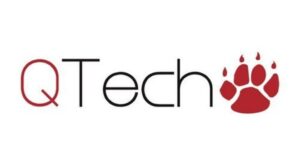Key Moments:
- The All-Party Group on Reducing Harm Related to Gambling has requested the UK government abandon its plan to align remote gambling tax rates.
- The group advocates raising the Remote Gaming Duty to 50% and the General Betting Duty to 25%.
- Northern Ireland has reported the highest rate of problem gambling in the UK under legislation that has not kept pace with online gaming.
Legislators Take Aim at Proposed Tax Alignment
Northern Ireland lawmakers are intensifying their push for changes to the UK’s approach on gambling taxation. The All-Party Group (APG) on Reducing Harm Related to Gambling has addressed the Chancellor in a formal letter, urging decision-makers to halt plans for a uniform taxation rate across all remote gambling products. The APG voices concern that making tax rates consistent may worsen, not lessen, gambling-related harm.
Concerns About Push Toward Addictive Products
The letter, signed by Philip McGuigan MLA, APG Chair, warns that standardizing taxes across remote gambling forms could lead operators to favor and aggressively market more addictive products such as online slots and casino games, as opposed to lower-risk offerings like sports betting. The group highlights a core issue: “if operators make the same profit regardless of product type, they will steer customers toward the games that generate higher spending, and greater harm.”
Advocacy for Substantial Tax Increases
Backing analysis from the Social Market Foundation and the Institute for Public Policy Research, the APG calls for a leap in the Remote Gaming Duty to 50% and the General Betting Duty to 25%. These think tanks suggest such changes could yield up to £2bn (US$2.6bn) in additional annual revenue, while also discouraging participation in more harmful forms of gambling. McGuigan underscored the disparity between products, stating: “Online slots and casino games present far greater dangers than traditional betting,” and added that gambling-related harm costs the UK over £1bn each year in terms of social and healthcare repercussions.
Northern Ireland’s Distinctive Regulatory Landscape
The APG’s correspondence highlights Northern Ireland’s unique vulnerabilities. Despite having the highest rate of problem gambling in the UK, the region still operates under outdated regulations from before the emergence of online gambling. The letter warns that a harmonization of tax rates could further entrench inequalities between Northern Ireland and Great Britain, the latter enjoying more modern regulatory protections.
The group also argues that many remote gambling operators, often located offshore, pay insufficient taxes in Northern Ireland and do little to support local employment or industries.
Increasing National Debate Over Gambling Tax Reform
With its recent intervention, the APG has intensified ongoing discussions regarding the UK Treasury’s gambling tax proposals. Supporters of aligning tax rates claim it would streamline the system and enhance fairness. Opponents, however, maintain such a move could accelerate addiction rates and disrupt sectors, like horseracing, heavily dependent on betting revenues. For Northern Ireland lawmakers, risk should guide fiscal policy, not administrative expediency.
Gambling Tax Proposals at a Glance
| Product/Tax Type | Proposed APG Rate | Projected Extra Annual Revenue | |
|---|---|---|---|
| Remote Gaming Duty | 50% | Up to £2bn (US$2.6bn) | |
| General Betting Duty | 25% | Up to £2bn (US$2.6bn) |
As government decision-makers weigh reforms, the critical question remains: will the UK put convenience ahead of public safety, or vice versa, in its next step on gambling taxation?
- Author


